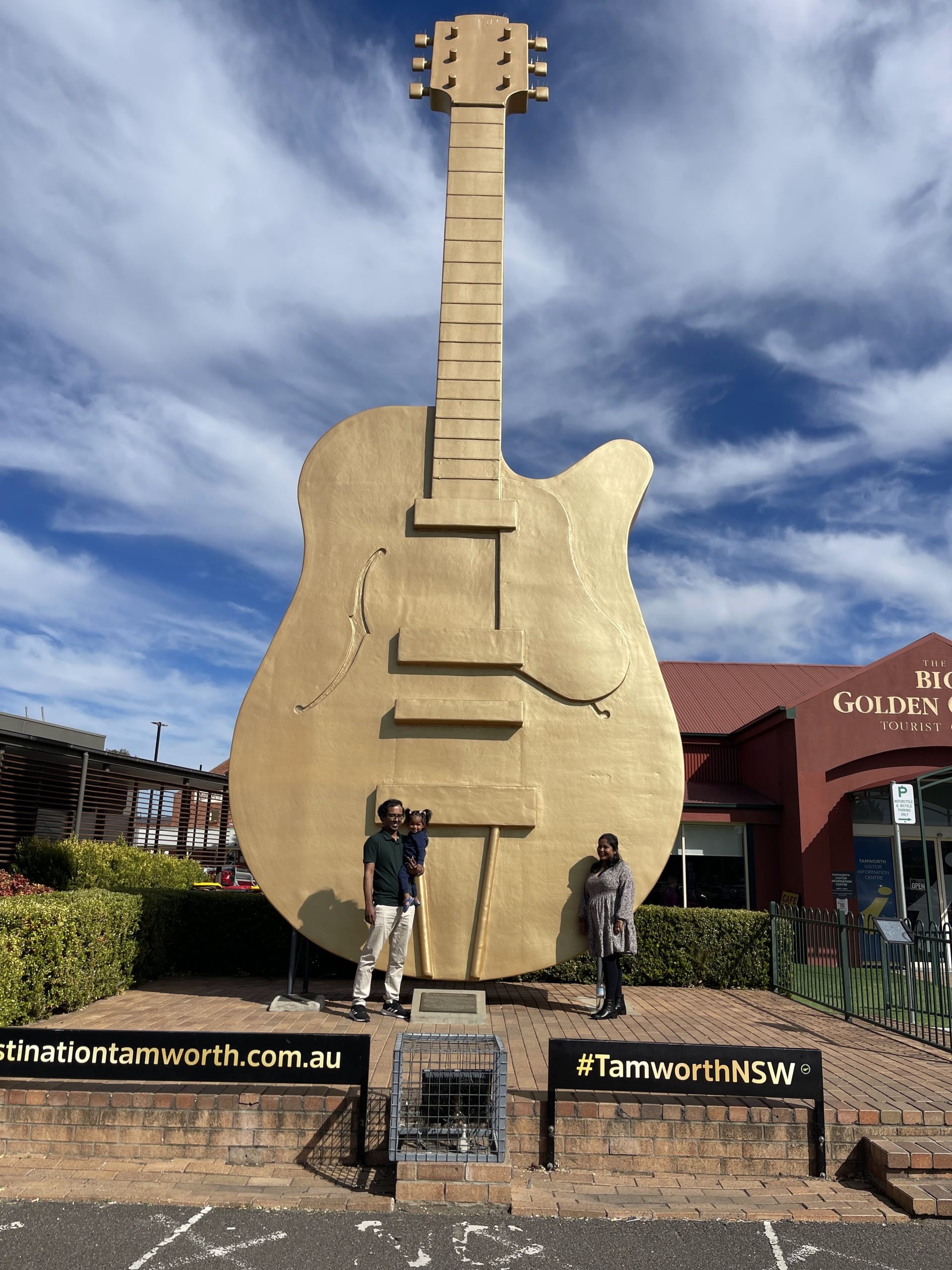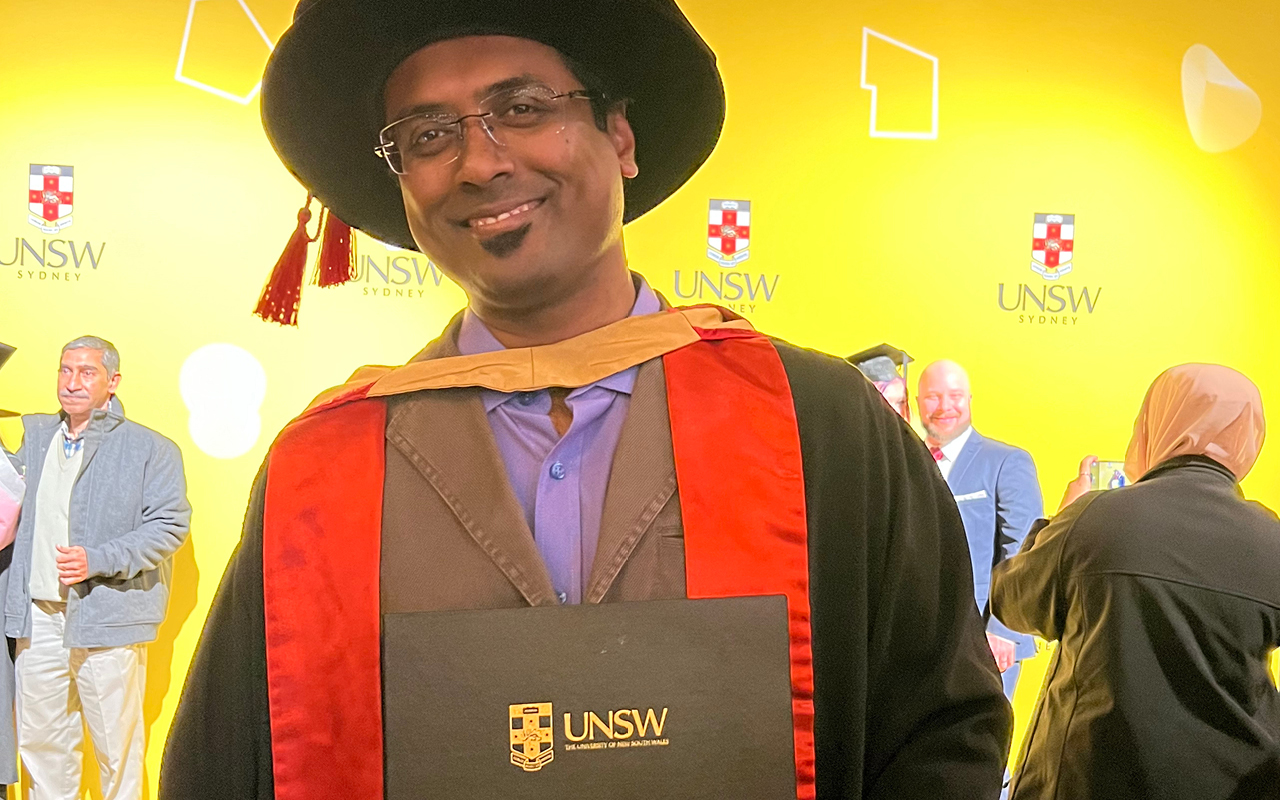In the following interview, Dr Ripan Debnath, who completed his PhD at UNSW Sydney in 2023, shares his journey from research at the City Futures Research Centre to his role at the NSW Department of Planning, along with advice for PhD students entering the workforce. Discover Ripan’s journey of success.
What were some of the research projects you were working on with UNSW?
My doctoral research at UNSW’s City Futures Research Centre examined the intersection of Greater Sydney’s growth, climate change impacts, and natural hazards, with a focus on urban and regional resilience planning. Throughout my PhD, I contributed to several applied research projects funded by industry and government partners, particularly through the Future Food Systems Cooperative Research Centre (FFSCRC). I was awarded a Future Food Systems PhD top-up scholarship that supported my work on regional agribusiness mapping and decision-making, research directly relevant to Australia’s food security and supply chain resilience.
My key research projects included:
- Agribusiness development for Namoi Unlimited Joint Organisation (JO) of Councils, NSW: Developed strategic planning and decision-making tools for regional agribusiness growth
- Western Sydney agrifood mapping and analytics: Delivered comprehensive spatial analysis in partnership with Liverpool City Council, NSW to guide agricultural development in the region.
- Developing housing metrics for Regional NSW in collaboration with the NSW Department of Planning.
Each project integrated spatial analysis methods, stakeholder engagement processes, and practical planning tools to support regional development outcomes.
What were the outcomes of these projects?
These projects generated several significant outputs:
- An interactive GIS-based decision support tool for the Namoi region, complemented by data visualisation and dashboards
- A comprehensive spatial analytics framework for Liverpool City Council that guides agribusiness growth planning and land use decisions in Western Sydney
- A detailed housing metrics framework for regional NSW, submitted as a formal report to the NSW Department of Planning, Housing and Infrastructure.
Across all projects, I facilitated stakeholder workshops, co-authored technical and policy reports, and translated complex analyses into practical tools and policy recommendations.
Who were you collaborating with on these research projects?
My research involved close collaboration with academic mentors at UNSW, including Professor Chris Pettit, Professor Hoon Han, Dr Simone Z. Leao and Dr Ahmed W.A. Hammad, who provided valuable guidance throughout my PhD and applied research projects. I also worked closely with NSW Government agencies, such as the Department of Planning, Housing and Infrastructure and the NSW Reconstruction Authority, as well as local government councils and Joint Organisations including Namoi Unlimited and Liverpool City Council. In addition, the Future Food Systems CRC played a key role in facilitating productive partnerships between academia and industry.

Ripan and his family in front of The Big Golden Guitar in Tamworth, NSW. Tamworth is part of the Namoi region.
How did your PhD lead you to where you are today?
My doctoral experience has equipped me with advanced technical and policy skills, particularly in strategic planning, regional growth analysis, spatial data modelling, and urban resilience, directly applicable to public sector planning and policymaking.
Working on real-world projects with government and regional partners has developed my capacity to translate research into action. I have gained expertise in stakeholder engagement, co-design methodologies, and evidence-based decision-making, all core competencies for effective government service.
Please tell us about your new role and what the job entails
I currently serve as a Planning Analyst at the NSW Department of Planning, Housing and Infrastructure, where I deliver research and analysis to inform housing supply, employment land use, and strategic planning initiatives across NSW. In this position, I work with diverse stakeholders to ensure planning is evidence-based, resilient, and responsive to demographic and market changes. This role allows me to apply both the technical competencies and policy understanding developed during my PhD while continuing to work at the intersection of planning, resilience, and public policy.
What are your words of advice for PhD candidates?
Whether it is through stakeholder workshops or conferences, your ability to explain your work to diverse audiences is crucial for academic and professional success. Collaborate where relevant and possible, build and reach out to government and industry contacts, and participate in events and seminars. These collaborations often lead to lasting professional opportunities that extend well beyond your doctoral studies.


